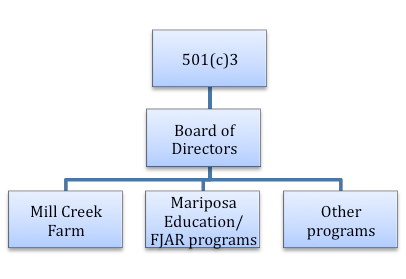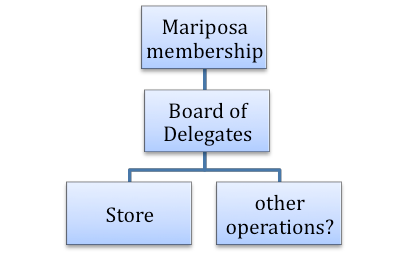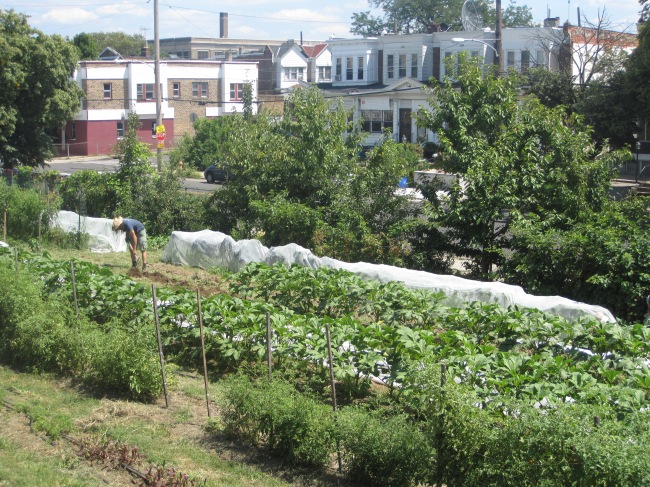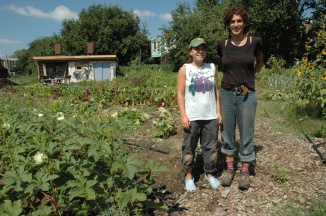Mariposa Co-op currently has the opportunity to seek an affiliation with Mill Creek Farm’s 501(c)3 umbrella, called “A Little Taste of Everything” (or ALTOE). Please fill out this four question survey so that the Food Justice & Anti-Racism work group and the membership can find out what members think about the board exploring this affiliation. The Membership will make a decision regarding this opportunity at the Annual General Membership meeting on Sunday, March 3 at Calvary Church.
http://www.surveymonkey.com/s/QVNRBZ5

Frequently Asked Questions about a affiliation between Mariposa Food Co-op and Mill Creek Farm
What is the Mill Creek Farm?
The Mill Creek Farm is an educational urban farm located at 49th and Brown Streets in West Philadelphia that is dedicated to improving local access to fresh produce, building a healthy community and environment, and promoting a just and sustainable food system.

The Mill Creek Farm grows food without using chemicals to improve access to fresh food in the community, and provides farm-based community education to promote a healthy food system and environment. The farm offers service learning and volunteer opportunities for individuals and groups, tours, community workdays, summer jobs for youth, after-school programs, and public workshops. The farm features fruit trees, bees, and structures that demonstrate sustainable and natural building techniques including a composting toilet, living roof, cob oven, solar panels, and use of recycled and salvaged materials in construction and a mosaic.
What kind of affiliation is proposed?
The proposed affiliation would create a new program area between Mariposa Food Co-op and Mill Creek Farm’s non-profit entity, while they remain independent organizations with independent Boards, etc.


What is in it for Mariposa in this relationship?
The affiliation would allow Mariposa Food Co-op’s education, food justice, and other charitable programs to operate under the 501(c)3 instead of under Mariposa’s operations budget (without having to set up a 501(c)3 from scratch, which Mariposa would not likely be able to do). This will build on an existing relationship that includes Mariposa workshifts at Mill Creek Farm, selling farm produce at the Baltimore Avenue store, and collaboration on educational programs.
How do members benefit? How does the community benefit?
The Mariposa Membership has an opportunity to play a key role in initiating a process that will benefit West Philadelphia and greater Philadelphia communities. Following in the footsteps of other food co-ops, Mariposa would support its membership and community through greater access to farming, education, internship programs, youth empowerment, and food justice activities. Our membership and our community will benefit from increased workshops and community events, and through opening up a new revenue stream to pay for these programs (which currently are paid for by Mariposa’s sales).
Isn’t Mariposa a Non-Profit?
Not really! Some businesses operate as not-for-profit, but being a tax-deductible non-profit is a specific Federal designation set aside for public service groups. The IRS code is “501(c)3.” Because all co-ops are owned by private individuals (even if some of their services- such as shopping- are open to the public), they are all barred from being treated like public, tax deductible organizations. (This means that, despite our good public works and community outreach, donations to Mariposa Food Co-op are not tax-deductible for donors and Mariposa is not eligible for certain grant funding.)
How much will this cost? Is it financially feasible?
Costs for this project will be carefully assessed by the Mariposa Board and Mariposa’s Finance Committee before enacting an affiliation.
Estimated cost for 2013, start-up: $15,000 contribution towards Executive Director salary, plus any legal fees associated with the logistics of creating a legal affiliation.
other costs: Future costs would be covered by revenue brought in through fundraising including individual donations, foundations, events, etc that the non-profit’s staff and board would be responsible for. Mariposa would not incur direct costs for this effort.
What are the other legal implications?
A lawyer supporting Mill Creek Farm with its affiliation explorations, and working on a pro-bono basis, is helping to highlight details regarding legal feasibility for Mariposa as well.
How can I get involved?
You may also donate to the Mill Creek Farm (which IS tax deductible ) by visiting this website: http://millcreekurbanfarm.org/civicrm/contribute/transact?reset=1&id=4










